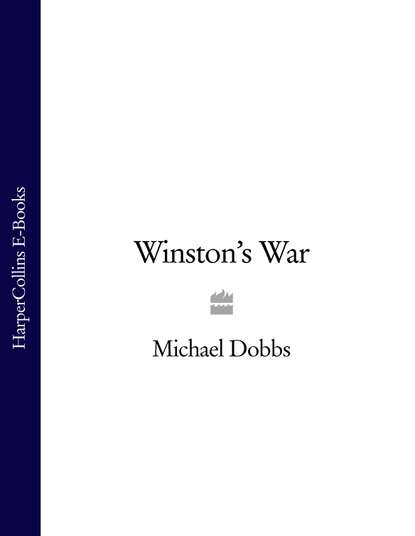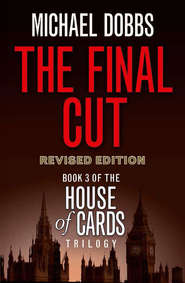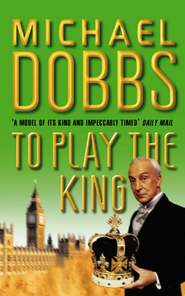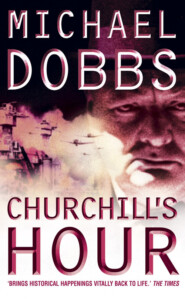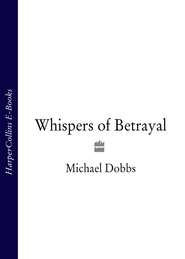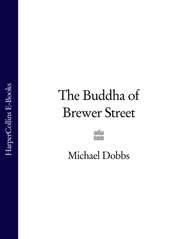По всем вопросам обращайтесь на: info@litportal.ru
(©) 2003-2024.
✖
Winston’s War
Настройки чтения
Размер шрифта
Высота строк
Поля
‘I shall be in your debt.’
‘Hey, don’t you just love democracy?’
As they conferred, other guests kept their distance, the hunched shoulders and conspiratorial tones of the two serving as a warning unmistakable to any but the most insensitive – or young.
‘Let’s go, Maxie, we’re all waiting,’ a young woman called out, stamping her feet impatiently against the cold. ‘Time to set the night on fire.’
The base of the bonfire had been well soaked in paraffin and tar, and the groundsman was standing by with a burning torch.
‘Come on, darling Maxie,’ she complained again, tugging at the fox-fur stole around her neck. It looked new.
‘Time for some action,’ Beaverbrook muttered. He grabbed the torch, raised it high above his head to the applause of his guests, then thrust it deep into the innards of the bonfire. Soon the flames began to conquer the night and Cigar Man from his lofty throne began to cringe in the heat and turn black, squirming as the flames took hold until finally he slumped forward and disappeared in a storm of sparks. The young woman squealed with delight.
‘Bit young even by your standards, isn’t she, Max?’ Ball chided.
‘Hell, Joey, I’m simply growing nostalgic. I once knew her mother.’
Later that week, much of Europe burned, too.
It was called Kristallnacht – Crystal Night – named after the millions of shards of glass that were left shattered in the street after Jewish shops throughout Germany and Austria were ransacked. Businesses and homes were plundered, the synagogues put to the flame. Ninety-three Jews were killed that night. In the ensuing weeks thousands more were to take their own lives. It was to be but a small down-payment on what was to come.
SIX (#ulink_a83966d4-2b8e-5dfc-ac0a-e9d95adf934e)
The eleventh hour, of the eleventh day, of the eleventh month. The moment when the guns had fallen silent on the Western Front and the slaughter had ceased, exactly twenty years before. Armistice Day. Bludgeoned by the ever-lengthening shadow of circumstance, the crowds had gathered in exceptional numbers around Lutyens’ stone Cenotaph in Whitehall to take part in the nation’s tribute to the dead. Nearly a million of them. Wasted in war. A war that some would have all over again.
It was a sunny day, mild for the time of year, and he had only to walk a few yards from Downing Street, but nevertheless the Prime Minister felt in need of his overcoat. He was feeling every one of his sixty-nine years. His physical resources were not what they once were. He found these ceremonies an ordeal, stirring emotions that he found hard to deal with, particularly the remembrance of his cousin, Norman, who had been killed in France. They had been devoted. Chamberlain had described Norman as ‘the most intimate friend I ever had’ and still grieved for him, most of all on days like this. Perhaps, too, there was that nagging memory inside Chamberlain that he hadn’t fought in that war, that even all those years ago he had already been too old. Past it. Unfit for Duty. Norman and the others paying a debt which he should have shared. Churchill had fought in the war, of course, seen action at the front and never ceased to remind people of the fact. The Warrior. Hero of the Boer War. And of the Great War. Almost as though Churchill were trying to torment him – no, nothing conditional about it, of course Churchill was trying to torment him. Trouble was, so often he succeeded.
They were all there, in formation around the white memorial of Portland stone, to his left the King and the other male members of the Royal Family, opposite him the Bishop of London, beside and behind him the other political leaders. And on all sides old soldiers, those who knew what it was like to bear the guilt of living while they watched their brothers die, all the time wondering why they had been spared the slaughter. There were young soldiers, too, who knew nothing of war – and who would never know, so long as he was Prime Minister.
At nights recently he had often woken, shivering with cold, feeling as though a cold grey hand were clawing at him deep inside. Sometimes he thought he was surrounded by ghosts. Men he had known, like Norman, and who had died, in his place. He heard their voices, whispering, but could never quite make out their words. They would not let him rest.
The band of the Brigade of Guards played their mournful music, then a lone piper took a single pace forward, pulling from his soul the notes of Purcell’s ‘Lament’. Chamberlain stood, head bowed. No other noise but the champing of a horse at its bit, the crowd fallen silent. At his right shoulder stood Edward Halifax, tall, gaunt, his large feet splayed out, towering above those around him, casting Chamberlain in shadow and making him feel almost insignificant. He felt the Foreign Secretary bend slightly, like a reed, and whisper in his ear.
‘Neville, did you see the papers this morning?’
‘The Jews?’ Chamberlain nodded his assent, still looking straight ahead.
The piper had finished and there was a short pause as the Bishop prepared to offer the prayers that led up to the two-minute silence. Soon they would be called upon to step forward and lay their wreaths of blood-poppies.
‘My God, but Hitler doesn’t make it easy for us, Edward.’
‘They’ll say it makes a mockery of our agreement with him.’
‘No! It mocks nothing. It illustrates the dangers. Makes our agreement all the more necessary.’ Chamberlain shivered in spite of the sun. ‘He gave me his word, Edward.’
‘Not on the Jews, he didn’t. We didn’t ask for it.’
‘Is there anything we can do?’
‘Do?’
‘Yes, get some balance back into the reporting, make it less lurid. Perhaps give the papers another story to get their teeth into.’
‘We’ve given them peace. What more can we do?’
‘We need a distraction.’
‘So, I suspect, do the Jews.’
‘I think Horace and Joe have something in mind. For distraction. Setting up a bit of a fox hunt.’ He seemed unwilling – or unable – to continue. He sighed, a long, pained rattle of breath. ‘Anyway, Christmas soon. Peace on earth …’
Chamberlain shivered once again; this time Halifax couldn’t fail to notice. It was almost time. As the clock of Big Ben began to strike the hour, the crash of artillery was heard from Horse Guards. Deep inside, Chamberlain cringed, wondering yet again how he would have withstood the deluge of death, had he fought.
It was after the ceremony had finished and they had marched stiffly behind the King back into the nearby Old Home Office Building that the conversation was resumed. They were drinking tea, warming themselves, relaxing after the parade. The King in particular seemed to find these official occasions a trial.
‘It went well?’ he asked. The words came at the stumble and in the form of a question. There had been no speech to make, nothing more to do than be a figurehead and set down a wreath of poppies, but still the King-Emperor needed reassurance.
‘Quite splendidly, sir,’ his Prime Minister replied.
‘Thank you, Mr Chamberlain.’ He was relaxing, feeling more at ease once he was inside and beyond the public gaze. And among friends. Halifax was his great companion and Chamberlain, too, had grown close. It had been exactly eighteen months since George had been crowned and had asked Chamberlain to assume the highest political office in the land; it had come to seem as if their destinies would be forever intertwined. That was why the King had invited his Prime Minister onto the floodlit balcony of Buckingham Palace immediately on his return from Munich. Some had said the gesture was unwise, even foolish, that it involved the Crown too deeply in politics and too closely with the fate of one Prime Minister, but the King had insisted. Appeasement was the right policy, it was the moral policy, the policy not only of God but also of his wife. He felt no need to compromise.
Around the room other men of matters were gathered, their voices low, respectful, except for one that was raised a shade too loudly, making his point vociferously, not in the manner of a gentle English stream but like a cascade of water running across the carpet. But then Leslie Hore-Belisha was scarcely – well, it wasn’t his fault, really, that he hadn’t been brought up in the manner of an English gentleman.
Words such as Berlin and Vienna reached out across the room, and the King stiffened within his uniform. ‘What is to be done about them, Prime Minister?’ he asked softly.
Chamberlain followed his gaze. ‘Ah, you mean the Jews, sir.’
‘What can we do? We’ve already given asylum to thousands. Now it threatens to turn into a flood.’
‘Halifax and I were just discussing the matter.’
‘I read the newspaper reports with distress, of course, but so often it seems as if these people don’t help themselves. Look at Palestine. We offer them seventy-five thousand places over the next five years, yet hordes of them try to pour in as illegal immigrants and cause chaos.’
‘Of course, sir, Palestine can’t be the answer. Too small. And too many Arabs. I’m afraid we were a little rash all those years ago to suggest that it might become a Jewish homeland.’
‘Wandering tribes, eh?’
‘The Foreign Secretary and I have been giving some consideration as to whether other parts of the Empire might be brought in to help.’
‘Other parts?’
‘Africa, perhaps. Tanganyika, sir,’ Halifax intervened, glad of an opportunity to participate. His height made it difficult to converse with the two considerably smaller men. He bent delicately, like a crane attempting to feed. ‘And perhaps British Guiana. It might be possible to make large tracts of virgin forest available for Jewish refugees to settle.’
‘At their expense, of course,’ Chamberlain added.
‘Wouldn’t it be possible simply to insist that they remain in their countries of origin? Prevent them from leaving in the first place?’ the King persisted. ‘After all, it’s not just the Jews from Germany trying to invade Palestine but those from places like Poland and Romania. There must be millions of them there. Surely it would be better for everyone if they simply stayed.’
‘Quite so,’ Chamberlain agreed. ‘But Herr Hitler isn’t helping, not with his latest nonsense.’





